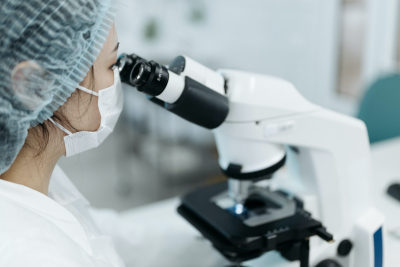


Regenerative medicine, including the use of tissue engineering and cell and gene therapies, has great potential for tissue regeneration and repair. The pace of advance in this interdisciplinary science is exciting and the medical opportunities in addressing the causes of disease rather than the symptoms may be transformative. However, there are growing concerns about the misuse of regenerative medicine technologies.
This is why the InterAcademy Partnership (IAP), a global network whose more than 140 member academies constitute more than 30,000 leading scientists, engineers and health professionals in over 100 countries, issued the IAP Statement on Regenerative Medicine.
The main priorities emphasised in the document are
Regenerative medicine comprises various novel interdisciplinary approaches to healthcare, aimed at tissue regeneration, repair, restoration and reorganization.
The IAP Statement, based on work by academy-nominated experts from Africa, Asia, the Americas and Europe, is inclusive in integrating perspectives including from Low- and Middle-Income Countries (LMICs) whose voices are sometimes relatively muted. Recommendations for supporting research and innovation, while protecting patients, cover issues for ethical assessment, pre-clinical and clinical research phases, regulatory authorisation and access to new medicines, and for engaging with patients, policy makers and the public.
Volker ter Meulen, IAP Special Advisor and chair of the Working Group that developed the statement, stresses that "accelerated access to novel medicines is vital for patient benefit, but researchers must not cut corners.”
"A coordinated strategy to address the current challenges in the field must encompass better science, better funding, better governance and better public and patient engagement," he adds.
The focus of this IAP Statement is on unmet medical needs: stem cells offer a case study with many of the conclusions relevant more broadly for regenerative medicine. Although stem cell therapy is well-established in only a limited number of clinical indications such as bone marrow or epidermis transplantation, there is active research and development in many more, including neurological, hepatic, cardiovascular, retinal and musculoskeletal disorders.
However, enthusiasm about the clinical potential has led to a disconnect between expectations and the realities of translating advances in technology into clinical practice. In many countries, there are two main problems. First, unscrupulous private clinics offer unregulated therapies promising much, but using poorly characterised products with little scientific basis or evidence for efficacy, and with unresolved safety concerns. Second, premature regulatory authority approval and commercialisation based on some, but insufficient, scientific rationale and clinical evidence.
Opportunities and challenges for the use of stem cells are exemplified by responses to the COVID-19 pandemic.
“Any such use of stem cells to tackle COVID-19 must be based on rigorous evidence of safety and efficacy, following strict research protocols that consider the ethical issues and characterise the stem cells used, focusing on a defined stage of the disease and in the hands of a team with capacity and validity to undertake the intervention,” says IAP Co-President Depei Liu.
Unfortunately, some of the same clinics that have been offering unproven regenerative medicine therapies for diverse conditions are now offering unproven treatments for the treatment of complications of COVID-19. While some research is in progress, e.g. on mesenchymal stromal cells, the preliminary studies are insufficient to support commercialisation.
There is a further concern regarding these unproven treatments for COVID-19: fraudulent claims of efficacy may encourage purchasers to abstain from taking other steps, e.g. social distancing, to protect themselves and others from COVID-19, or to get one of the different types of COVID-19 vaccines available.
"Although there may be scientific rationale for exploring and pursuing novel research directions in responding to COVID-19, premature use of unproven approaches risks patient safety and undermines public confidence," warns IAP Co-President Sir Richard Catlow.
Regenerative medicine strategies depend upon harnessing, stimulating, guiding or replacing the body’s own development and repair processes.
The full text of the IAP Statement on Regenerative Medicine can be downloaded from https://www.interacademies.org/statement/iap-statement-regenerative-medicine.
Working group members, academy fellows and IAP Presidents are available for interviews.
Under the umbrella of the InterAcademy Partnership (IAP), more than 140 national, regional and global member academies work together to support the vital role of science in seeking evidence-based solutions to the world’s most challenging problems. In particular, IAP harnesses the expertise of the world's scientific, medical and engineering leaders to advance sound policies, improve public health, promote excellence in science education, and achieve other critical development goals. IAP academy members constitute more than 30,000 leading scientists, engineers and health professionals in over 100 countries.
A central focus of IAP's mission is to reach out to society and participate in discussions on critical global issues in which science plays a crucial role, and since its inception in 1993, IAP has been producing statements on issues of fundamental importance to humanity. These statements – which are released only once they have been endorsed by the majority of IAP members – are not only a reflection of the major issues that confront society but are also evidence of IAP's ongoing commitment to society.
Giovanni Ortolani, IAP Communications Assistant
Email: gortolani@twas.org
More information about IAP can be found at www.interacademies.org, on Twitter at @IAPartnership, on LinkedIn and YouTube.
